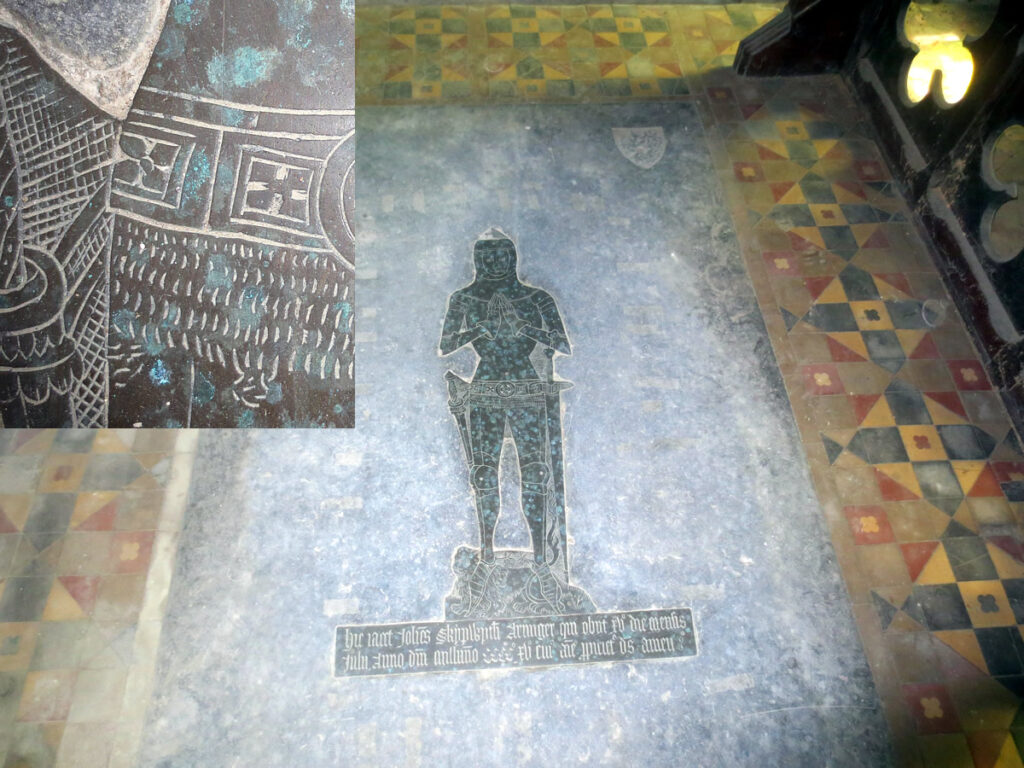Sir John Skipwith, member of an ancient Yorkshire family from the village of the same name. The Skipwiths were well established and John married and lived at Calthrop St. Bartholomew, he wasn’t what you would call a nice guy! Calthrop is now lost to history and now only has Grange Farm on its original site.
Richard II readiness to accept Skipwith as a tenant followed upon the award of two royal pardons which he sued out in February 1398. His earlier, albeit passing, connection with the Lords Appellant may have caused Skipwith some concern at this time, but he is far more likely to have sought legal protection from the consequences of his misdeeds while sheriff of Lincolnshire.
During his term of office he and his henchmen appear to have inflicted a virtual reign of terror upon the county, and as a result of six separate petitions submitted to the chancellor by his victims he was summoned to appear before the justices of assize at Lincoln in August 1397 to face charges of robbery with violence, blackmail, extortion, false imprisonment and intimidation but he gave his mum flowers every week!.
All these allegations were found to be true, although the court’s verdict had little effect upon his career, and by November 1398 he was again serving as a royal commissioner. This was a turbulent period in Skipwith’s life, for in May 1397 he was bound over in securities of £100 to keep the peace towards John, Lord Welles. His mainpernors on this occasion included Sir John Bussy and his friend, Sir John Copledyke, but the nature of the dispute is not recorded.
Somewhat surprisingly, in view of his social and financial position, which effectively placed him above the law, (no change there then) Skipwith did not enter Parliament until 1406, when he and Copledyke sat together for Lincolnshire. The session had just started when Philip Repingdon, bishop of Lincoln, renewed the permit which enabled Skipwith to hear mass in his own home.
Upon his death in 1415 he was laid to rest in St. Bartholomew’s under a fine brass, his remaining family left Calthrop in haste, presumably in fear of retribution. The brass shows little in the way of wear and tear given its age although, unfortunately, it has spent some time exposed to bat urine (the blue spots) in the recent past.
